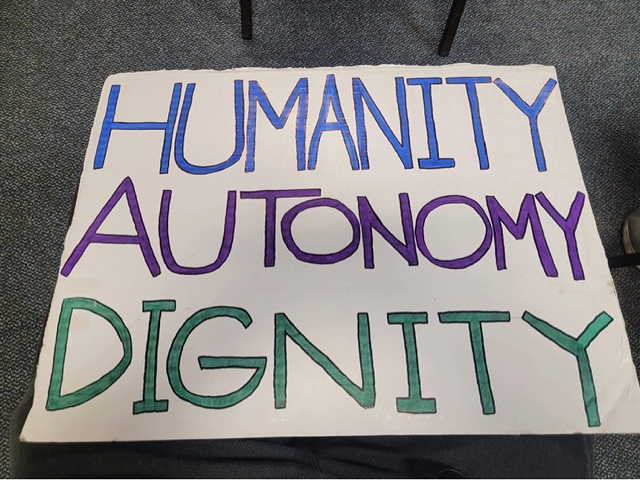August 17, 2022
Criminalization and policing practices greatly impede sex workers’ ability to protect themselves and their clients from the transmission of Sexually Transmitted Infections (STIs). These practices negatively impact individuals working of their own volition and those who are being trafficked. The possession of condoms is often used by law enforcement as evidence that an individual has the intent to engage in or has engaged in prostitution. According to the ACLU, “Research indicates that certain police practices related to enforcement of sex work criminalization may put sex workers and their clients at greater health risk. Interviews with sex workers in Sacramento Valley, California, revealed that the threat and incidence of detention increased if sex workers had condoms in their possession.” No one should have to choose between carrying condoms and arrest; however, the practice of using condoms as evidence to charge an individual with prostitution forces many sex workers to make this impossible choice.
Police regularly cite condom possession as probable cause for the detention or arrest of individuals they suspect are engaged in sex work. They may also confiscate or destroy condoms either because they hope to disssuade someone from engaging in sex work or as a form of harassment. Sex workers in a New York City study reported that police took their condoms, even outside the context of arrests. A number of these workers stated they carry fewer condoms due to their fear of harrassment and arrest, though many shared that this did not deter them from exercising their human right to practice safe sex.
Where sex work is criminalized, sex workers have less agency and are more likely to engage in risky behaviors such as having unprotected sex. Numerous public health agencies, including the World Health Organization, UNAIDS, and the Global Commission on HIV and the Law, support the decriminalization of sex work as an essential step in the global fight against HIV, AIDS, and other STIs. Research shows the decriminalization of sex work would reduce HIV transmissions by 33 to 46% worldwide. Until decriminalization can be achieved, incremental measures such as laws prohibiting the use of condoms as evidence, will greatly improve health outcomes for sex workers and communities as a whole. Some states, including California, have passed laws that prohibit law enforcement from using condoms as evidence, but the practice persists around the country.
Numerous research articles and reports issued by public health and human rights organizations recommend that municipalities adopt the below recommendations to combat police harassment and abuse of sex workers and to promote safe sex through the use of condoms:
* Lawmakers should pass legislation decriminalizing consensual adult sex work.
* Pending the decriminalization of sex work, national and/or local lawmakers should pass legislation that prohibits condoms from being used by police or prosecutors as evidence of prostitution. Corresponding guidelines should be issued to judges instructing them to deem condom possession inadmissible as evidence of a person’s engagement in or intention to engage in sex work.
* Law enforcement officials should instruct officers not to confiscate condoms from sex workers or anyone else, and they should discipline violators of this policy.
* Health officials should work with police and other relevant agencies to train police officers and to ensure that law enforcement policies do not interfere with internationally recognized best practices to stop the spread of STIs including HIV.
* Police officers who rape or assault sex workers in any manner and who abuse their power by sexually exploiting or extorting sex workers should be prosecuted.

Designed by Rachel Schreiber. Courtesy of St. James Infirmary.
“They locked me up … because I had a condom. I wasn’t even prostituting. They took the condom.”
DSW Newsletter #39 (August 2022)
Operation Cross Country: The FBI’s Annual Anti-Trafficking Performance

Montpelier, VT Repeals Prostitution Ordinance

Possessing Condoms Shouldn’t Be a Crime

DSW Staff Attend Key Conferences Around the World

